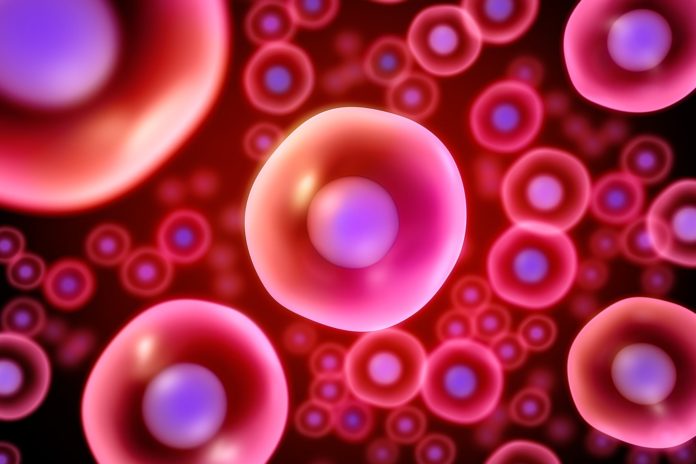WHAT IS STEM CELL TECHNOLOGY
Stem cells are those having the ability to continuously divide and differentiate (develop) into various other kind(s) of cells/tissues.
Properties of Stem Cells
They differ from other kinds of cells in the body. All stem cells, no matters what their source is, show three general properties:-
- These are unspecialized cells (Blank cells).
- They have the ability of proliferation and renewal (These are capable of dividing and renewing themselves for long periods of time).
- Stem cells have the potential to give rise to specialized cell types(Differentiation).
Types of Stem Cells
- Embryonic stem cells arrives from an embryo, which is five-to-six days old. Virtually , they got the ability to produce any type of cell found in the human body.
- Embryonic germ cells are produced from a human embryo part or a foetus , which results in the formation of eggs or sperms (gametes).
- Adult stem cells are similar cells found in between specific or distinguished cells in a tissue or an organ after birth. On the basis of recent researches , they seem to be having a more constrained capability in self-renewal and producing different types of cells.
Stem Cell type Description Example
| Totipotent | Each Stem cell can develop into a new individual | Cells from early (1-3 days) embryos |
| Pluripotent | Cells can form any (over 200) cell types | Some cell of blastocyst/ Inner cell mast-ICM (5 to 14 days) |
| Multipotent | Cells differentiation , but can form a number of other tissues | Foetal tissue, cord blood , and adult stem cells |
As per their potential to differentiation into other types of cells, stem cells are of various types:-
- Toti potent
- Multi potent
- Pluri potent
- Oligo potent
- Uni potent
Toti potent:- These types of stem cells have the ability to develop a complete organism. The fertilized egg (zygote) and the cells produced by the first few divisions of the fertilized egg cells, all are totipotent in nature.
Pluripotent :- These types of stem cells can differentiate into nearly all cells i.e., Blastocyst-based stem cell/ Inner cell mass(ICM).
Multipotent:- These stem cells can differentiate into many types of cells that are closely related cells , i.e., bone marrow , hematopoietic stem cells , adipose , tissue, etc.
Oligopotent:- Stem cells can differentiate into only a few cells like lymphoid or myeloid stem cells , squamous epithelium.
Unipotent:- These cells can differentiate into only one cell type, but have the property of self-renewal , distinguishing them from non-stem cells , though it is unclear if they actually exist or not, i.e. muscle stem cells.
Types of Stem Cells:-
- Embryonic Stem Cells(ES Cells):- They are pluripotent stem cells, which are derived from the Inner cell mass of the blastocyst (an early stage embryo). The blastocyst stage , in human embryo is reached 4-5 days post-fertilization , when it consist of 50-150 cells. Isolating the embryo from blastocyst or inner cell mass (ICM) results in destruction of fertilized human embryo, which raises ethical issues. Embryonic stem cells are Pluripotent type.
- Induced pluripotent stem cells(iPSCs):- They are a type a pluripotent stem cells , which are artificially derived from a non-pluripotent cell, typically an adult somatic cell, via induction of “forced” expression of specific genes. First, iPSCs were produced in 2006 from mouse cells and in 2007, human cells. This may allow researchers to obtain pluripotent stem cells , important in research and potentially have therapeutic uses, without the controversial use of embryos. Because iPSCs are developed from a patient’s own somatic cells, it was expected that treatment of iPSCs would avoid any immunogenic responses.
- Adult stem cells:- These are the undifferentiated cells , found all over the body after the development of embryo, multiplying by cell division for replenishing the dying cells and regenerating the damaged tissues. They are also called as somatic stem cells, and are present in juvenile as well as adult animals and humans. These are multipotent in nature.
- Amniotic Stem Cells:- Amniotic stem cells are multipotent and can differentiate in cells of adipogenic, osteogenic, myogenic, endothelial, hepatic and also neuronal lines. Since the stem cells can be used from amniotic fluid , the ethical objections to use human embryos as a source of cells are currently not an issue.
Stem Cell Treatment:-
It is an intervention strategy type for inducing new cells into damaged tissue for treating disease or injury. The self-renewing ability for giving rise to consequent generations with variable capacities, offers vital potential for generating tissues, which can possibly replace the body’s diseased and damaged cells. The risk of rejection and side effects will also be minimal in this case.
Large number of stem-cell therapies are existing; however , most of them are at experimental stage or costlier , with the noteworthy exception of bone marrow transplantation. It is anticipated that adult and embryonic stem cells will soon be able to treat cancer, Type1 diabetes mellitus , spinal cord injury , Parkinson’s disease , Huntington’s disease , Celiac Disease, arthritis, leukaemia and other cancers , cardiac failure, muscle damage and neurological disorders , and many others. Stem cells are also used in testing of new drugs and faster development of drugs.
Stem Cell Controversy:-
This controversy is over ethical debate due to killing of human embryos in embryonic stem cells. This is not in all other different nature of stem cell those involves in the creation , usage and destruction of human embryos. For example, adult stem cells , amniotic stem cells and induced pluripotent stem cells have no issue because using or destroying of human embryos is very rare.
India’s top Centres for Stem Cell Research
- Centre for Stem Cell Research (CSCR), Christian Medical College (CMC) Vellore, Tamil Nadu
- School for Regenerative Medicine , Manipal, Karnataka
- Centre for Stem Cell Science , Hyderabad
- International Centre for Stem Cell , Cancer and Biotechnology, Pune
- National Centre for Cell Science , Pune6
- Prasad Eye Institute , Hyderabad










